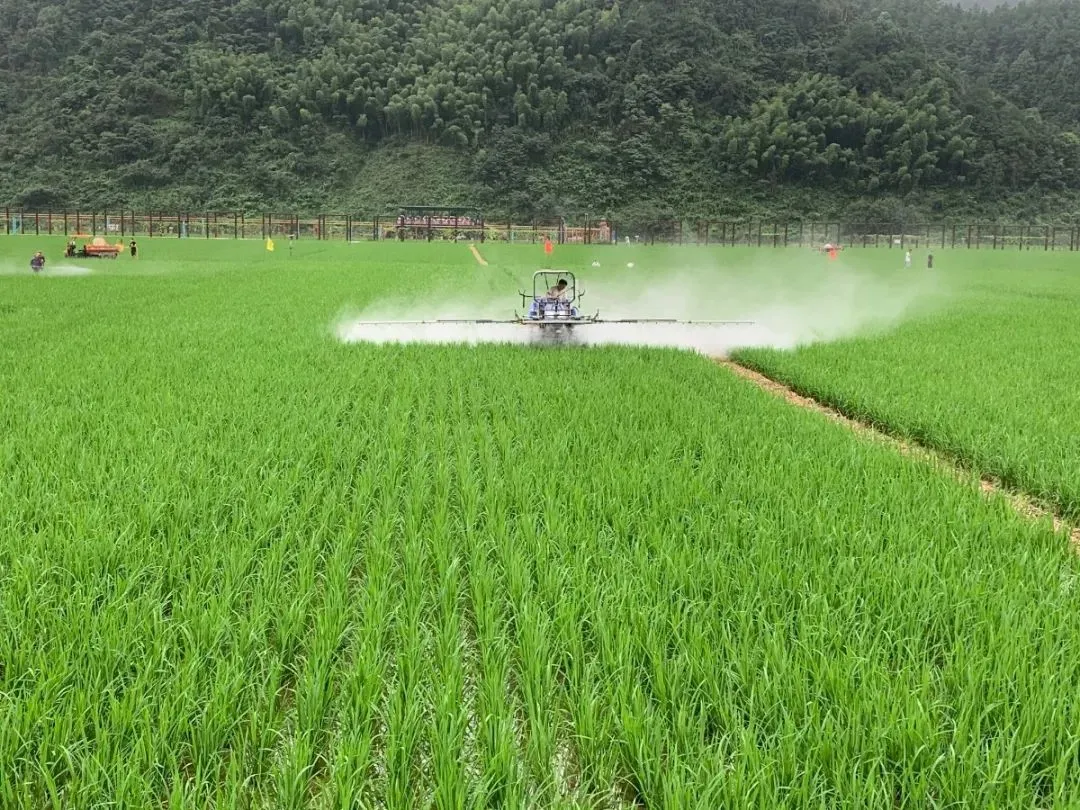
gru . 10, 2024 02:18 Back to list
Exploring the Mechanism of Mesotrione as a HPPD Inhibitor in Weed Management
Mesotrione A Renowned Inhibitor of 4-Hydroxyphenylpyruvate Dioxygenase (HPPD)
Mesotrione is a selective herbicide that belongs to the group of triketone compounds, developed for controlling broadleaf and some grass weeds in various crops, particularly in corn and sorghum. Its effectiveness comes from its ability to inhibit the enzyme 4-hydroxyphenylpyruvate dioxygenase (HPPD), an essential enzyme in the biochemical pathway responsible for the synthesis of plastoquinone and tocopherols. This article explores the significance of mesotrione and its inhibitory action on HPPD, shedding light on its mode of action, benefits, and environmental considerations.
Mode of Action
HPPD plays a crucial role in the metabolism of plants by catalyzing the conversion of 4-hydroxyphenylpyruvate to homogentisate, a precursor for plastoquinone, an essential molecule for photosynthesis, and for the synthesis of tocopherol (Vitamin E). Mesotrione specifically binds to the active site of HPPD, inhibiting its activity. This inhibition prevents the formation of plastoquinone, leading to the disruption of the photosynthetic electron transport chain, resulting in the death of susceptible plants.
By blocking this critical enzyme, mesotrione effectively stunts growth in weeds, causing symptoms such as bleaching, chlorosis, and ultimately plant death. Weeds treated with mesotrione cannot produce vital pigments necessary for photosynthesis, which leads to their decline and suppression, allowing for better crop performance.
Benefits of Mesotrione
The use of mesotrione comes with several benefits for agriculture. Its selectivity allows for the control of target broadleaf weeds without affecting many grass crops, making it an invaluable tool in integrated weed management strategies. Farmers can apply mesotrione in post-emergence scenarios with minimal impact on their primary crops.
famous hppd inhibition mesotrione

Moreover, mesotrione has a relatively low toxicity profile for non-target organisms, including humans, when used according to label recommendations. It also demonstrates favorable environmental characteristics, such as low persistence in soil and rapid degradation, reducing the risk of long-term ecological impacts.
Additionally, mesotrione's unique mode of action helps in the management of herbicide-resistant weed populations. By incorporating mesotrione into rotational herbicide programs, farmers can mitigate the risk of resistance developmen,t promoting sustainable agricultural practices.
Environmental Considerations
While mesotrione offers numerous advantages, it is essential to consider its environmental implications. As with any chemical, there are potential risks associated with its use. Mesotrione can leach into groundwater if improperly managed, raising concerns about water quality. Therefore, following best management practices, including proper application rates and timings, is crucial to minimize its environmental footprint.
Furthermore, the potential impact on non-target plant species should be monitored. Although mesotrione is selective, care should be taken during application near sensitive crops or natural habitats. Implementing buffer zones and adhering to recommended application guidelines can help mitigate these risks.
Conclusion
Mesotrione stands out as a significant tool in the fight against weed resistance and for enhancing crop productivity. By inhibiting the essential enzyme HPPD, mesotrione effectively curtails the growth of undesired plant species while preserving desirable crops. Its selective nature, combined with a favorable toxicity profile and environmental persistence, makes it a valuable asset in sustainable agriculture. Nonetheless, it is imperative that users remain informed of its potential environmental risks and adopt best practices to ensure its responsible use. Ultimately, mesotrione exemplifies the intersection of scientific advancement and agricultural necessity, paving the way for more efficient and sustainable farming practices.
-
Kasugamycin Fungicide: Efficient Bacterial & Fungal Control
NewsAug.02,2025
-
Emamectin Benzoate: AI-Optimized Pest Control Solution
NewsAug.01,2025
-
Best Abamectin 95% | Top Pesticide for Crop Protection
NewsJul.31,2025
-
Insecticide Spirotetramat 11% + Thiacloprid 11% SC at Good Price
NewsJul.30,2025
-
Best Abamectin SDS - Premium Quality & Reliable Safety Data
NewsJul.29,2025
-
Agrochemicals Pesticides Solutions for Sustainable Farming
NewsJul.29,2025
